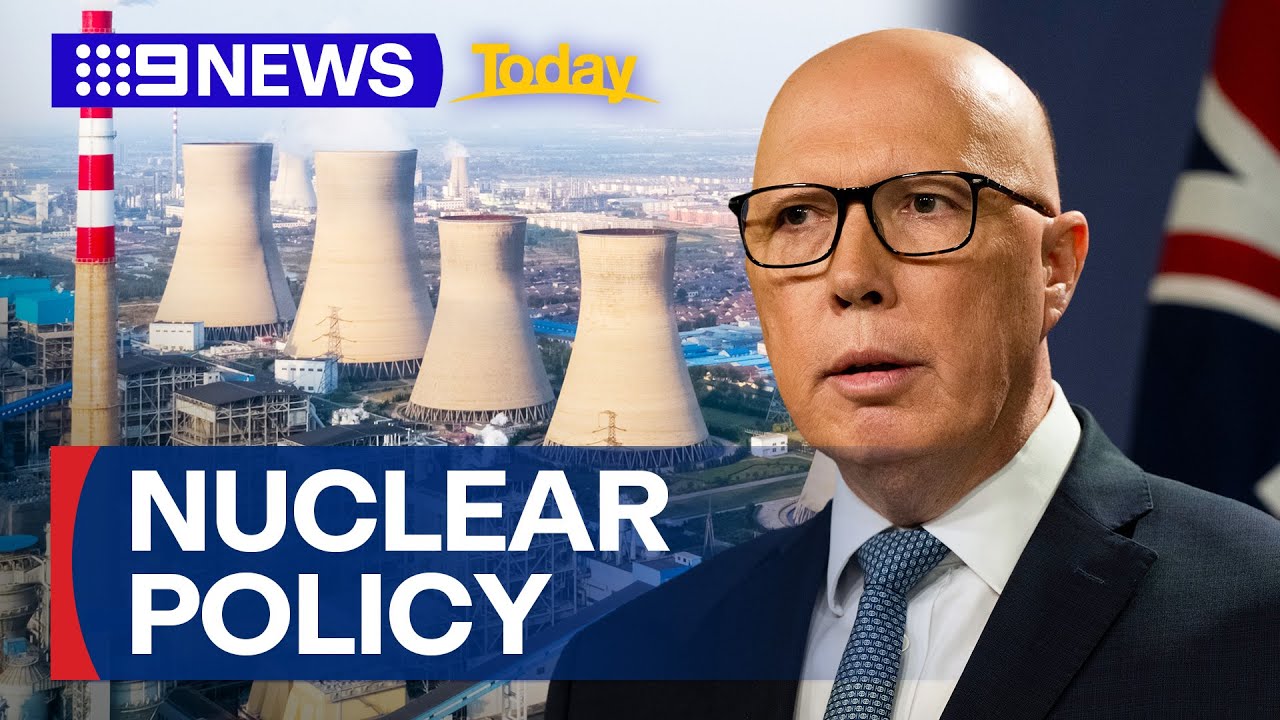The press conference is currently still live so this was the best short video I could find on the topic.
To begin, I’m absolutely against this proposal, but I want to see a discussion - hopefully a constructive one - between Aussies (comments are always turned off for Australian news on YT) to gauge some idea of how people generally feel about the idea.
Fire off.



Nuclear is fucking awsome and had the ability to fix our energy issues. There is strong evidance that the oil corporations are actually responsible for manufacturing nuclear fear narrative because it poses an actually economically viable alternative.
Thats not to mention the CSIRO who access tally forgot to include the most economically viable nuclear energy method of there analysis of “all” energy production methods. So much for independence.
Nuclear is literally the most expensive way to generate energy and no amount of liquid salt or SMR hallucinations can come even close to fixing that problem.
You don’t need to create fear of nuclear, it’s a bad choice all by itself.
I might be reading to much in to the previous commenters use of the word had. But you’re at arguments make a lot more sense today than 30 years ago.
It certainly was fear that stopped Australia from building a nuclear industry in the 90s. It made a lot of sense then. Today, it’s hard to see it anything more as a diversionary tactic.
Liquid salt is good for small heigh density systems mainly submarines. SMR is bullshit and far more expensive that other reactors (mainly due to the lack of expertise or good designs available). SMR is the silicon valley tech bro bs reactor. We gotta stop fuckin around and go to Japan or France and be like hey here’s a couple billion we like that one put it here.
In 3 years, solar panel cost has mostly dropped in half (you can buy a 10kw system for the same as 6.6 a few years ago). Battery cost dropped 25% over the past year.
Nuclear can’t dispatch any power (incrementally or otherwise), until its fully built. Nuclear is also expensive power, and it can’t be dispatched as quickly or cheaply as solar/batteries (so the nuclear power station will remain offline). Don’t forget that generators need to sync to the grid fully, and can even lose sync and take hours to come back online (which happened to Loy Yang recently, and there were huge blackouts in victoria). When more despatchable power is needed, batteries will win EVERY time (because its cheap and instant).
Its reasonable to think that even 40kwh batteries will be cheaper and safer than even 10kwh batteries too and much higher efficiency solar panels (and possibly solar windows), so people will get off the grid and can have days of solar eclipse too.
Battery capacity is limited by cost still… It won’t be in the future (don’t forget, residential is about $ per kwh, NOT density)
One thing that is also misunderstood, is that panels still also produce power when its cloudy too… Solar panel efficiency in 10 years will increase rapidly, and this will only improve…
Nuclear is like an average olympic athlete who isn’t allowed to start a race for 10 years. Sure it looks competitive now, but there are so many other athletes around, that by the time Nuclear gets to the starting line, the other athletes will be finishing.
@Auzy @muntedcrocodile https://en.wikipedia.org/wiki/Thorium-based_nuclear_power
So you propose building a reactor that doesn’t have anything actually working beyond demonstration reactors yet?
It still has many of the same issues coal and gas has:
The only real problem it solves is that its more reliable than solar, and cleaner than coal. But… In two and a half years, solar panel efficiency also increased by 5%. So, in 10 years, that could be a 20% efficiency increase too… And in 6 years, the cost halved.
In the unlikely case the thorium plant does need to be shut down (natural disaster as an example, similar to Fukashima), we’re basically screwed. Microgrid’s wouldn’t have this trouble… Also, it basically requires that we just do nothing about the pollution for 10-20 years whilst they’re building it, or the extra power requirements we’ll need to transition to non-fossil fuel cars.